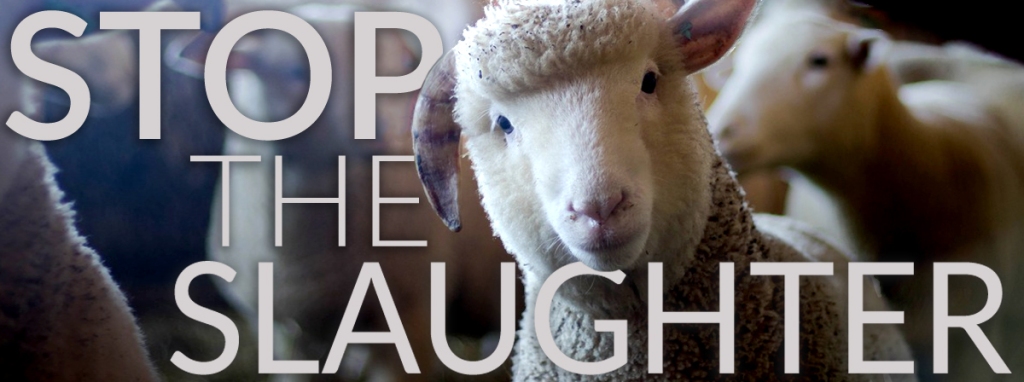The Reducetarian Paradox: Rigidly Applying ‘Moderation’ to Eleven Madison Park Restaurant

The absolute irony of nonvegans boldly offering advice on how to be vegan that doesn’t even work on themselves is totally on brand for those seeking social appreciation for their efforts helping absolutely no animals. If vegan-bashing-and-blaming wasn’t so transparently pathetic, it would be juvenile-hilarious: a “reducetarian” is nothing but an omnivore who needs to feel special but cannot be bothered to stop their contribution to animal suffering; an apologist seeking a virtual hug from others who are the exact same way; a vocal animal lover with zero actions to demonstrate such: a position that is absolutely meaningless to the victims who suffer and violently die while they play eenie-meenie-miney-mo with innocents who are denied all opportunity to defend what is wrongfully stolen from them: their bodies.
As a vegan, I’m not responsible for someone else’s inability to be decent. It’s always interesting when someone faults an “offensive, radical” vegan for their incapacity for empathy, who do people like this normally blame? Nobody forces you to eat a pig or a dog or use a product that blinded a rabbit or wear a jacket from an infant who was skinned alive for it: nonvegans do not participate in animal exploitation because of vegans, such declarations are nothing short of desperate playground bullying tactics that cause unimaginable suffering and violence, and no different from people refusing to oppose racism because they once saw an activist aggressively holding a sign promoting the radical idea of equality.
A vegan is opposed, vocally and actively, to the violence inflicted on animals. It is NOT extreme to be opposed to exploitation; it is extreme to CAUSE it, SUPPORT it, SANCTION it. Indeed, to the animal victims whose bodies are forcibly intruded upon and mutilated, whose children are stolen, and who are assigned a gruesome and fearful execution before even being born, what is “extreme” is not those who reject it, but rather the suffering, pain, and bloody control they are forced to endure under a social umbrella of acceptable, normalized violence. SL
Source Free From Harm
“Reducetarian” founder Brian Kateman took issue with the news that famed Eleven Madison Park, a Michelin 3-star restaurant in New York City, announced it was converting its menu to full-on plant-based (well not really as milk and honey will still be on menu) instead of easing into it, the reducetarian way. In his article published in Wired, Kateman warns of the inadvertent backlash that could ensue from what he sees as a risky move that could harm vegan advocacy. His speculations raise many important issues which I address here. I’d like to thank my colleague Benny Malone, author of the new book How To Argue with Vegans, for offering his insights as well.
I must say from the get go that I find it odd and ironic, as Malone points out, that “Kateman often advises vegans on advocacy but hasn’t even convinced himself to become vegan in the course of some eight years. No wonder he thinks it’s hard to persuade others.” He appears to be in a perpetual state of flexitarian ambivalence. “His own reasons for not being vegan are due to taste and convenience and a misguided notion that a ‘middle ground’ in the arena of justice is the more reasonable one,” explains Malone, “while he positions veganism as extreme, absolutist and dogmatic.”
On the shortcomings of current vegan advocacy, Kateman writes, “Environmentalists and animal advocates have been trying for decades, and still only a small percentage of the industrialized world is vegetarian or vegan.”
First, most of the environmental movement has ignored animal agriculture’s impact on the environment. Even now, the most radical environmental groups, such as Extinction Rebellion, do not openly advocate veganism. A majority of the progressive left still dismisses and/or attacks veganism. As for animal advocacy, most of the animal groups also do not openly endorse veganism and some even endorse so-called “humane” animal products and/or certify such products and hold events with animals on the menu. Of the groups that do advocate veganism specifically, many have not until very recently engaged in the political activism needed for transformational change (targeting decision makers and institutions who have the power to influence large populations and systems). That level of strategy we see used successfully in other social movements is still in its infancy in the animal rights and vegan movement. Kateman and his ilk don’t fully understand the power of this form of activism and are quick to disparage it before it even has a chance to show its impact.
On how reducetarianism could lead to an increase in veganism, Kateman writes, “if the vegan label and stigma are removed, and diners know they can eat what they want, they are more likely to go on their own.”
It’s wishful thinking that if people are left to their own devices, they will do the right thing. As far as shedding the stigma, Malone points to the paradox that “Kateman has consistently reinforced negative stereotypes about vegans and veganism rather than challenge them. Instead of normalizing veganism and being vegan himself, he is content to feed into these negative perceptions and not engage in any myth-busting or debunking of anti-vegan positions. It serves his aims of making Reducetrarianism seem more appealing to allow these misconceptions to continue and indeed perpetuate and reinforce any stigmas.”
On the potential backlash, Kateman writes, “If Eleven Madison Park, one of the most well-resourced restaurants in the world, fails and winds up reverting back to a typically meat-heavy menu, it’ll signal to other chefs that this can’t be done well and in a profitable way. That’ll set the movement back in ways that will be hard to overcome.”
But I am hard pressed to find an example that demonstrates Kateman’s warning. On the contrary, there are a number of exclusively plant-based food brands that have grown exponentially, despite not offering any animal products. In one recent case, a 50-year-old meat company, NOBLE Jerky, announced an increase in revenues of 70% after ditching meat and introducing a 100% plant-based product line.
Please read rest HERE
Download Your FREE Vegan PDF HERE
Order a FREE vegan kit HERE
Dairy-Free Info HERE
Take the Dairy-Free Challenge HERE
Click HERE for more Dairy-Free
Fish alternatives can be found HERE
Learn about eggs HERE
Find bacon alternatives HERE and HERE
Take PETA’s Cruelty-Free Shopping Guide along with you next time you head to the store! The handy guide will help you find humane products at a glance. Order a FREE copy HERE
Searching for Cruelty-Free Cosmetics, Personal-Care Products, Vegan Products, or more?
Click HERE to search.
Free PDF of Vegan & Cruelty-Free Products/Companies HERE
Click HERE to find out How to Wear Vegan!
Want to do more than go vegan? Help others to do so! Click below for nominal, or no, fees to vegan literature that you can use to convince others that veganism is the only compassionate route to being an animal friend:
PETA HERE
Vegan Outreach HERE
Get your FREE Activist Kit from PETA, including stickers, leaflets, and guide HERE
Have questions? Click HERE
Ignorance at times is voluntary stupidity













































Ignorance at times is voluntary stupidity
LikeLiked by 1 person
Agree, perfectly stated, if this guy’s actions/words weren’t so destructive, he’d just be laughable: everybody’s a “reducetarian” while they sleep or when they skip breakfast; the world was “reducetarian” a century ago, look how well animals (and enviro and humans) have since fared: trillions of animal victims killed yearly following brief lives of pain, suffering, and neglect, enviro destruction, pandemics … It’s disgusting how his efforts profiting from the exploitation of animals is considered noble or meaningful, I’ll pretend to take him seriously when he campaigns for accolades for serial/mass murderers because as “reducetarians” they “only” killed 20 vs 40 people.
Thank you, hon.
LikeLike
So very welcome you are ❤️🦜
LikeLiked by 1 person